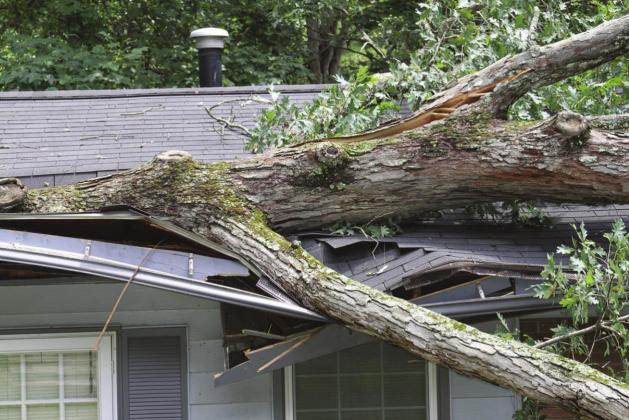Hurricanes aren’t the only disasters that Floridians need to be prepared for each year. Wildfires, floods, tornadoes and sinkholes are other reasons why it pays to make sure your homeowners’ insurance is adequate, and that your financial interests are up-to-date and protected.
Do you need flood coverage?
Standard homeowners’ insurance policies don’t cover flood damage. If you live in a flood-prone area, contact your agent about obtaining flood insurance. Depending on your home’s location, you may qualify to enroll in the National Flood Insurance Program. You can get answers to general inquiries about flood insurance by calling the NFIP Help Center at 1-800-427-4661.
Do you need windstorm coverage?
Some homeowners’ insurance policies do not cover damage caused by windstorms, such as hurricanes. If you have trouble obtaining a policy that does, you can check with Citizens Property Insurance Corporation, a state-run pool of last resort, by logging on to www.citizensfla.com or calling Citizens toll-free at 1-888-685-1555. Remember that insurance companies do not accept new applications or requests to increase coverage once a hurricane nears Florida.
Do you need more coverage?
The value of your home and possessions may have increased during the past several years, or you may have made improvements or purchased expensive items such as computers or major appliances. Review your insurance policy and check your coverage limits. Consider increasing your coverage if your policy doesn’t cover the value of your home and its contents. If you want to make policy changes concerning wind and water damage, it’s best to contact your agent before the start of hurricane season on June 1.
What does your policy cover and exclude?
Standard homeowners’ insurance policies usually limit coverage on valuables such as jewelry, silverware, guns, antiques or boats. Check your policy and contact your insurance agent or company with questions, or to request additional coverage.
If you live in a condominium, find out what coverage your condominium association provides. You may need your own policy for the interior of your unit. You also should check the deductible amounts contained in your policy. All policies include deductibles for perils, or causes of possible loss, such as fire, hurricane, hail, etc. In Florida, most homeowners’ policies include a larger deductible for hurricane damage and a smaller deductible for other damage.
“Replacement Cost” vs. “Actual Cash Value”
If you bought a television for $700 in 2017, and it gets destroyed by lightning, a policy written to cover “actual cash value,” would pay an amount reflecting its current value, about $300. But if your policy is for “replacement cost,” it would pay the complete amount for a new TV of a similar type and size - about $900.
Most coverage of the contents of your home is written on a cash-value basis. Keep receipts when you buy high-value items such as televisions and computers. You might need this information to verify the age and value of your possessions.
Inflation, renovations and rising property values increase the replacement cost of your home and its contents. Actual cash value may decrease over time.
What about “additional living expenses”?
Additional living expense features of most homeowners’ policies pay some expenses for losses that leave homes unlivable during repairs. Such expenses could include limited motel, restaurant and storage costs. Keep all receipts during this period. This feature does not apply to flood insurance.
Civil authorities, such as law enforcement agencies and emergency management services, sometimes issue mandatory evacuation orders that affect thousands of residents. Find out whether lodging and meals are covered if you must evacuate but no damage occurs to your property. Does any deductible or coverage limit apply?
Most policies will provide additional living expense coverage when a civil authority prohibits the use of a residence due to direct damage to neighboring homes by a covered threat. Policies generally offer this coverage without any deductible, and for losses of up to two weeks. If you have any questions, call the Department of Financial Services’ toll-free Consumer Helpline at 1-877-MY-FL-CFO (1-877-693-5236).




